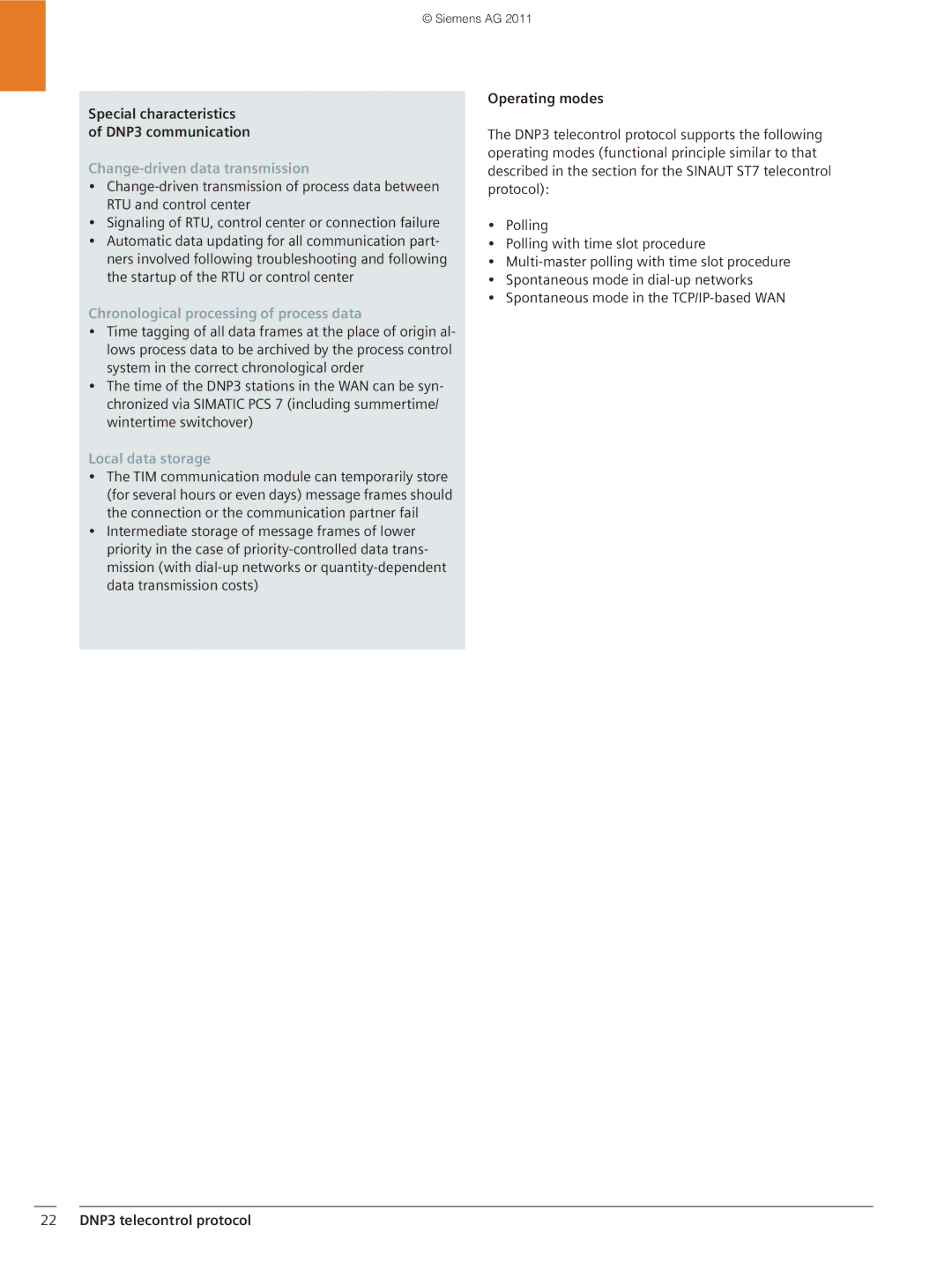
© Siemens AG 2011
Special characteristics of DNP3 communication
Change-driven data transmission
•
•Signaling of RTU, control center or connection failure
•Automatic data updating for all communication part- ners involved following troubleshooting and following the startup of the RTU or control center
Chronological processing of process data
•Time tagging of all data frames at the place of origin al- lows process data to be archived by the process control system in the correct chronological order
•The time of the DNP3 stations in the WAN can be syn- chronized via SIMATIC PCS 7 (including summertime/ wintertime switchover)
Local data storage
•The TIM communication module can temporarily store (for several hours or even days) message frames should the connection or the communication partner fail
•Intermediate storage of message frames of lower priority in the case of
Operating modes
The DNP3 telecontrol protocol supports the following operating modes (functional principle similar to that described in the section for the SINAUT ST7 telecontrol protocol):
•Polling
•Polling with time slot procedure
•
•Spontaneous mode in
•Spontaneous mode in the
